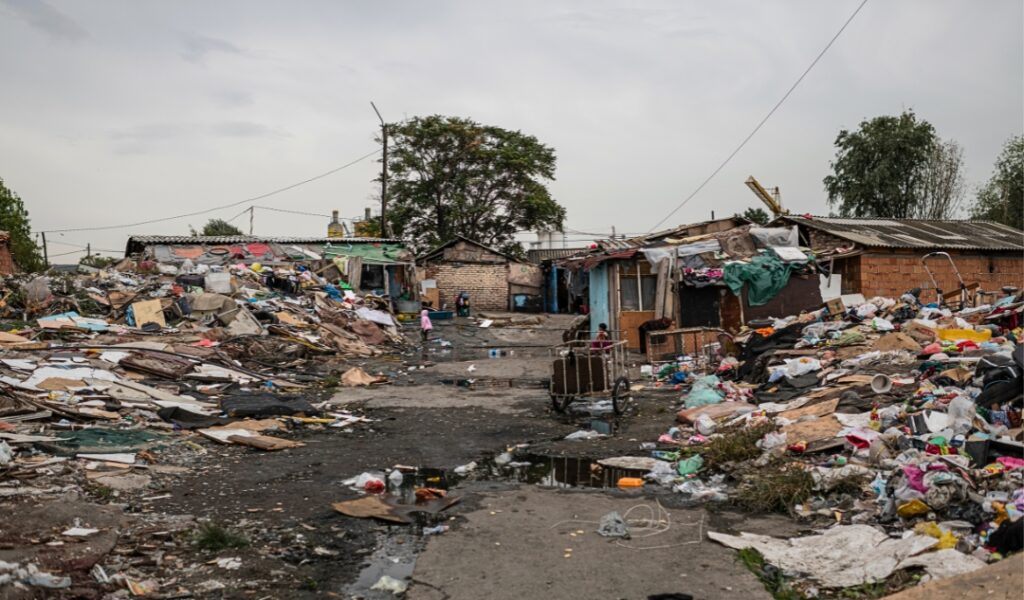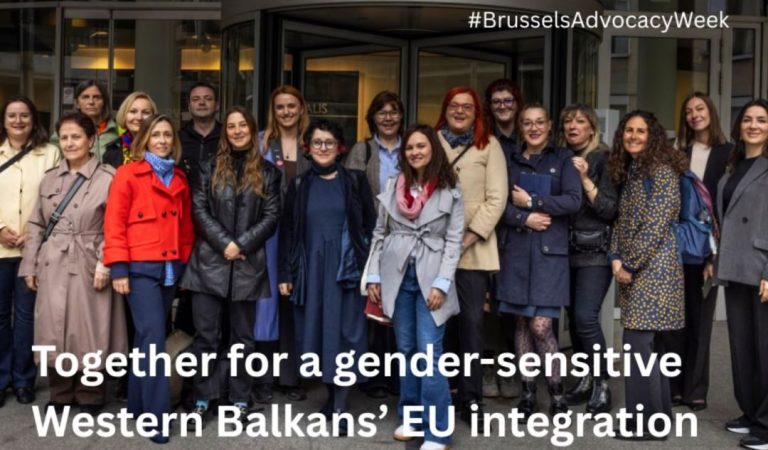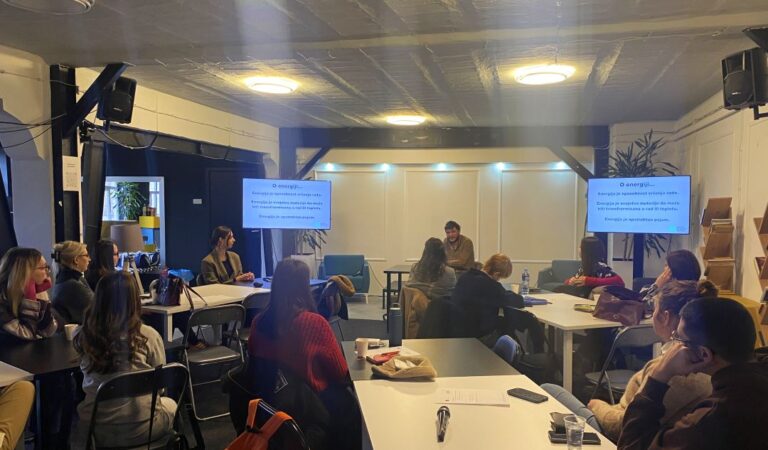As we observe International Roma Day on the 8th of April, it prompts us to reflect on the status of members of the third-largest national minority in Serbia.
A sizable portion of the Roma community remains in substandard living conditions in informal settlements, lacking personal documents. Half of the Roma population lacks formal education. The plight of Romani women is compounded by the fact that they face discrimination on multiple levels and are frequently coerced into early marriages.
Roma are a difficult-to-employ category due to numerous stereotypes prevalent in the public sphere. They face widespread discrimination and blatant racism, sometimes even endorsed by senior government figures.
On this day, the A 11 Initiative discovers the distressing revelation of widespread mistreatment of Roma individuals, leading to severe impacts on their lives, with no consequences for the culprits.
A group of around ten Roma individuals from the “Vuka Vrčevića” settlement, near the Pančevo bridge, fell victim to a scam in 2022 where their ID cards were taken by fraudsters for fake job applications.
As a result, they were deprived of their financial social assistance for several months due to this exploitation – they lost their financial social assistance and health insurance, while some companies through which they fictitiously “worked” are still active.
Through correspondence and on-site observations, A 11 – Initiative for Economic and Social Rights determined that the registration of employees was part of a well-planned business strategy aimed at gaining benefits, even though none of the employees actually worked.
The service that turned out to be a scam
In the midst of revelations before and after elections about large-scale transfers of residents’ registrations between locations, we draw attention to a practice that, while resembling the former in its actions, we argue is ultimately more detrimental in its effects.
The A 11 Initiative uncovered significant abuses when, in July 2022, as part of their regular field activities, they visited the Roma settlement “Vuka Vrčevića”. The vast majority of the inhabitants of this settlement rely on financial social assistance and access to free meals, residing in extremely impoverished conditions with no electricity, limited water supply, and often overlooked by the authorities.
From conversations with Roma individuals, our legal team learned that about ten people lost their right to financial social assistance because they “got employed.” Namely, in mid-March 2022, just before the presidential and parliamentary elections at that time, a person visited this settlement claiming to be authorized to collect their ID cards, supposedly to “prepare” them for the elections and register them at polling stations for the upcoming voting process.
Knowing they were dealing with mostly uneducated and legally uninformed individuals, this person took advantage of the situation. A group of around ten people gave their ID cards to this individual, thinking they were receiving a service, and got them back an hour later.
After some time, one of the deceived Roma women went to the Republic Health Insurance Fund to validate her health insurance card – only to find out that her “employer” had not been paying contributions for mandatory health insurance for her, so she could not renew the validity of her card. Prior to that, she was covered by health insurance due to her social assistance recipient status.
It turned out that this person concluded fictitious employment contracts between about other ten Roma individuals, from whom ID cards were taken, and various companies by forging their signatures. Initially, employment contracts were signed for a three-month term, yet they were never terminated after the initial period, resulting in indefinite employment.
The A 11 Initiative highlights the various adverse effects experienced by these individuals as a result of the mentioned criminal act. Besides losing financial social assistance and rights to other benefits (because being employed, they are no longer considered vulnerable), they were also denied the chance to find employment as they were already considered to be fully employed in their non-existent jobs.
At the same time, the fictional employer neglected to make contributions, causing them to lose their health insurance.
Overnight, a Roma woman was appointed as a salesperson at a Belgrade company, with the backing of a “well-known” man from Novi Sad
The Roma individuals who fell victim to deception were predominantly listed as sales representatives in a number of private companies in Serbia. Some were even registered as truck drivers, even though these positions did not match their skills or requirements. Despite being notified, the police did not advance the case or conduct a thorough investigation after questioning the exploited and deceived citizens.
The A 11 Initiative has determined that this constitutes a significant violation of the law, potentially involving the misallocation of subsidies for employing hard-to-employ categories (such as Roma) or using the loophole to pay off-the-books wages to these imaginary workers, potentially assisting in money laundering without leaving a paper trail.
It’s apparent that a few of these fictional companies are owned by the same person, with one individual from Novi Sad previously noted in the media as the owner of the most (loss-making) companies in Serbia.
After visiting the locations of these companies, the A 11 Initiative did not find any evidence of real business operations. Subsequently, we reached out to the relevant state authorities in charge of maintaining employee records. This resulted in a chain of jurisdictional referrals, while the vulnerable Roma individuals continued to be fictitiously employed during the entire “correspondence” process, hence being denied their rights to access social services.
It took the A 11 Initiative six months to facilitate the transfer of some individuals from their job-based insurance to state-sponsored medical coverage, thereby enabling them to be included in the Center for Social Work’s records.
Regrettably, no compensation was awarded to any of the victims. The individuals were falsely employed until February 2023, which was more than six months.
One resident of this Roma settlement, S. R., was fictitiously employed at “Tara Market” located in New Belgrade, at Bulevar Mihajla Pupina 10/E. As per an official statement obtained by the A 11 Initiative from the Republic Health Insurance Fund, S. R. was added to the employment-based insurance registry on March 10, 2022. The record indicated that her registration was inputted inaccurately.
L. B. was fictitiously employed at “Johnny Micros Hold GMD Company” in Kragujevac, which was established at the end of 2019 and deregistered from the Business Registers Agency in April 2023. The labor inspection failed to locate this company at the reported address, prompting the case to be forwarded to the Ministry of Internal Affairs and the economic crime department.
D. K., a Roma woman, was turned away by the National Employment Service as they claimed she was already employed. The same unbelievable and unpleasant experiences were shared by B. R. and T. P., also residents of the Roma settlement.
T. P. was fictitiously employed at “Elektrosklop” in Belgrade, at Obilićev venac 18. Despite multiple efforts, the labor inspection was unable to track down this employer. D. K. was supposedly working at “Novak Gradnja,” but the inspection discovered that the address in Ripanj was clearly fake.
Most of the applications were filed on the same day, as verified by the A 11 Initiative from official documentation.
There is a lack of concern for the abuses suffered by the most vulnerable
Affirmative actions in Serbia aim to boost the hiring of individuals from national minorities, urging entrepreneurs to give opportunities to those who are often sidelined. Nonetheless, these measures are frequently abused, resulting in great harm to individuals who are often on the verge of survival, all for the benefit of individuals, typically with little consequences.
The A 11 Initiative is once again calling on all relevant authorities to stop any violations of the rights of the most vulnerable citizens. It’s glaringly evident how efficient authorities are when prosecuting those weaker than themselves, while they appear fearful and disinterested when it comes to sanctioning slightly larger players.
For the betterment of those on the margins of society, it’s not enough to merely establish affirmative measures—there must be strict control over the system where individuals always seek ways to profit at the expense of others, in this case, at the expense of those who already struggle immensely to assert their rights.
In Belgrade, 8 April 2024



